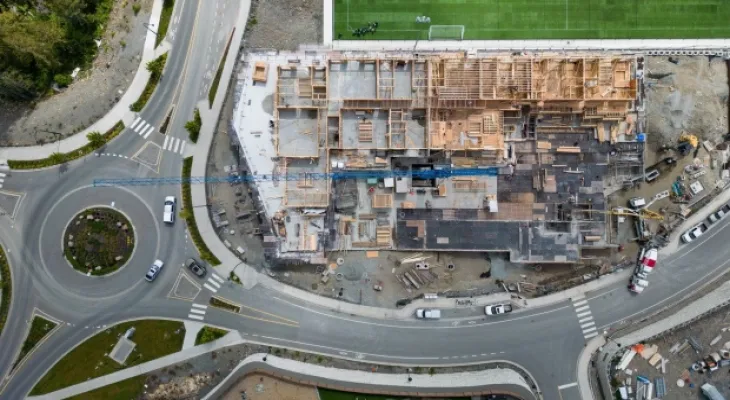Search here
Newspaper
Search here

Arab Canada News
News

Published: June 12, 2024
While Canada aims to build homes faster, both the public and private sectors will need to increase spending on municipal infrastructure, according to a new report from the Canadian Urban Institute.
The report, funded by the Canadian Infrastructure Bank, estimates that the average cost of infrastructure needed to support housing is likely to exceed $100,000 for each newly built home. This includes funding for resources such as public transit, roads, water lines, schools, fire halls, or recreational facilities.
The Canada Mortgage and Housing Corporation expects Canada will need an additional 3.5 million housing units by 2030, on top of the 2.3 million units that are already expected to be built, to restore affordability to the levels seen in 2004.
Report author Michael Finn, who served as the Chief Municipal Officer in Hamilton and Burlington, Ontario, noted that this level of housing increase - more than 500,000 homes annually - is equivalent to building a city the size of Calgary every year for seven years.
Mary W. Rowe, CEO of the Canadian Urban Institute, stated in a press release, "The housing crisis in Canada is largely an investment crisis."
"Yes, Canada needs more housing, but to achieve this goal, we need the necessary infrastructure - water lines, streets, sewers, storm drains, and all the other essential municipal services - that make it possible to build new homes."
While some new housing will benefit from existing infrastructure, the report noted that there are barriers to funding newly required projects.
For example, municipalities often hesitate to incur debt or pass on capital costs by raising property taxes for political reasons.
In some cases, growth is stifled by municipalities insisting that developers bear the financial burden by pre-paying the full capital cost of long-lasting infrastructure. The report also pointed out that there is municipal opposition to relying on the private sector to provide public infrastructure, especially if it involves transferring ownership or control.
Multiple alternatives were suggested, such as moving away from requiring upfront development fees to an approach that provides guaranteed payments over the asset’s lifespan.
The report recommended that municipalities also develop new financing tools that allow them to share infrastructure costs among beneficiaries, including developers. It stated that developing tools like land value capture and tax increment financing could help cities deliver more services.
Other recommendations include leveraging private capital to invest in public infrastructure through measures like utility and development partnerships. It mentioned that financial risks should be shared with institutional investors who are better positioned to absorb them.
Erin Kury, CEO of the Canadian Infrastructure Bank, said in a statement, "Municipalities often face challenges in financing the vital infrastructure they need to help launch new housing projects."
"This report shows that there are a variety of new forms of financing support... that can help municipalities build the infrastructure needed for housing ahead of population growth."
Comments